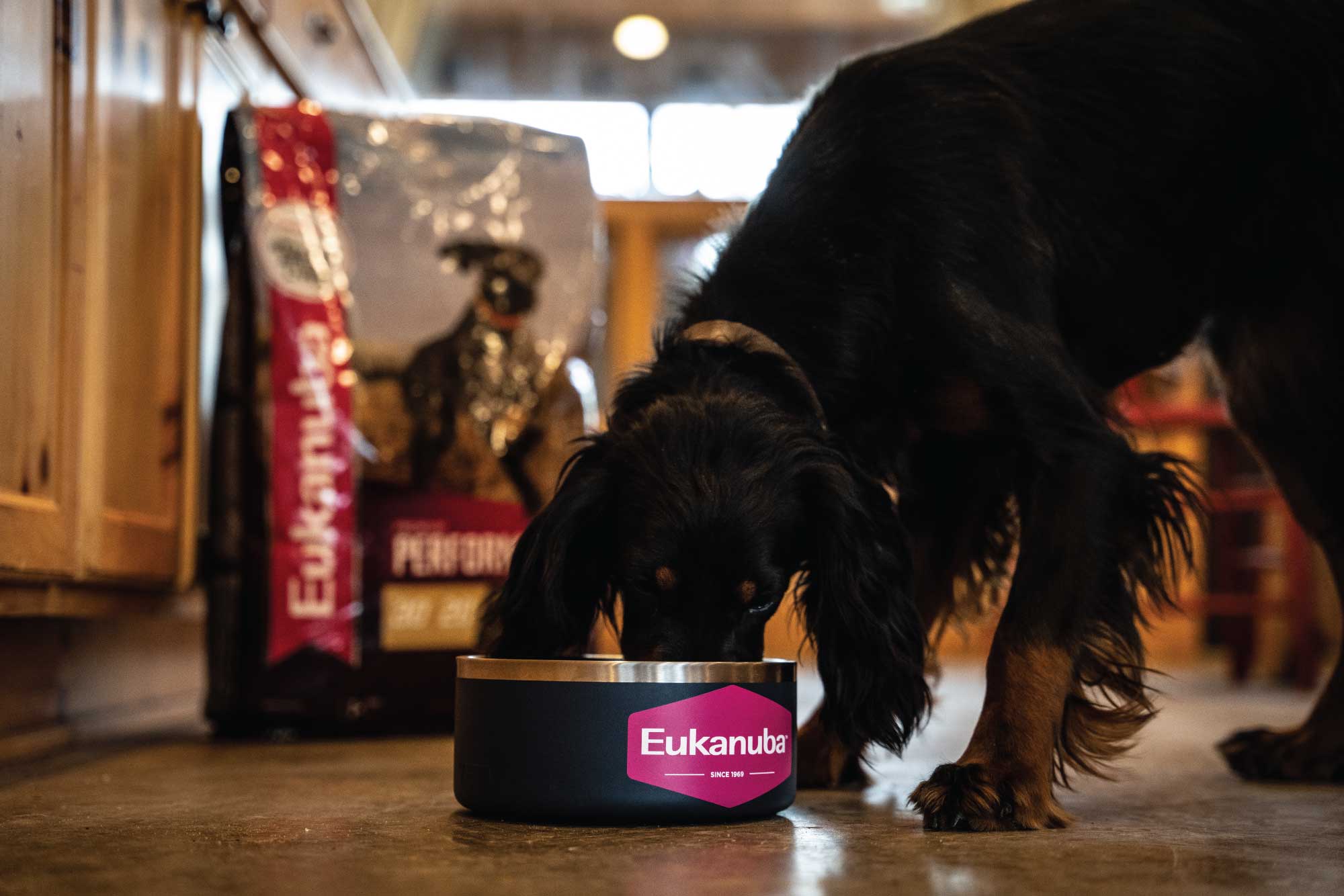Sponsored Content from Eukanuba™
When it comes to optimizing performance, professional athletes know the importance of healthy muscles. The same applies to our canine athletes. Whether your sporting dog is a hardcore waterfowler or a big-running bird dog, maintaining healthy, lean muscle will help ensure years of performance.
Dogs naturally condition themselves when given the opportunity, so you won’t have to take your dog to the nearest gym for squats and sit-ups. But beyond conditioning, your dog needs optimal nutrition to keep her muscles strong and healthy. Here are the key nutrients that will help keep your dog’s muscular system in top form.
MUSCLE HEALTH REQUIRES PROTEIN PLUS OTHER KEY NUTRIENTS
When it comes to muscle health, it’s easy to fall into the trap of focusing on a single nutrient like protein, but optimal nutrition is more about balance than about any single nutrient. Just as your dog’s muscles have to work together in a delicate balance to create stable fluid movement, the nutrients in your dog’s diet need to work together to help build and fuel those muscles.
“Muscle tissue is a great example of how many different nutrients are needed for a dog to function optimally,” says Russ Kelley of Eukanuba™’s Pet Health & Nutrition Center. “One class of nutrients is not more important than another. They are all important, in that they work together for our dogs to perform at an optimal level.”

Every dog has unique needs. A Lab swimming long distances to make retrieves uses her muscles differently than a cocker making short sprints to flush quail. Their muscles also need varied levels of nutrients that reflect their activity.
“With any exercise, there is a high demand for protein to promote muscle function,” says Kelley. “Dietary protein helps maintain muscle mass and promotes muscle growth.” However, protein isn’t the be-all and end-all when it comes to muscle health. Your dog relies on an interconnected mix of other nutrients to put protein to use.
AMINO ACIDS
Kelley notes that while protein is important for a dog’s muscles, we also need to think about the nutrients that create protein.
“Amino acids are the building blocks of protein,” he explains. “It’s impossible for a dog to produce muscle or proteins for the muscle if he doesn’t have the amino acids that are required for that protein.”

Of the 20 amino acids found in protein, dogs can produce half of them in their bodies. The other 10 they need to consume in their diet. Thankfully, these amino acids are found in foods typically associated with protein, including meat, fish, and eggs, and plants such as beans and legumes. Foods that contain all 10 essential amino acids are called complete proteins. Eukanuba™’s philosophy of using high-quality animal protein to help build and maintain lean muscle is rooted in this science.
One non-essential amino acid-derived nutrient that is vital for muscle health is L-carnitine. Kelley explains that L-carnitine supports muscle growth, but more importantly L-carnitine facilitates the use of fat as an energy source for muscle cells.
BUILDING VERSUS FUELING MUSCLES
This leads us to a common misunderstanding when it comes to muscles and protein. While protein helps build muscle, fat and carbohydrates help fuel the muscle.
“To a certain extent, as activity levels increase, so does the amount of protein a dog needs,” says Kelley. “That’s simply because with more activity more muscle is used.” However, fueling muscle for the task at hand comes from a blend of fats and carbohydrates. The optimal ratio is based on the duration and intensity of a dog’s activities. Anaerobic activities like a cocker sprinting require an increase in carbohydrates to optimize performance, while aerobic activities like a half-day upland hunt rely on an increase in fats.

Eukanuba™’s Premium Performance line includes a variety of different fat, carbohydrate, and protein blends so hunters can cater their dog’s diet to varying activity levels. Of course, the final aspect of muscle health is exercise. Lack of exercise can lead to muscle weakness, which can lead to injuries. You want to make sure your dog is exercising every day to stay in shape, which is beneficial both physically and mentally for your dog.
According to Kelley, the key takeaways for muscle health are: high-quality, easily digestible protein; a diet with an optimized blend of fats and carbohydrates geared to a dog’s activity level; and proper conditioning.




